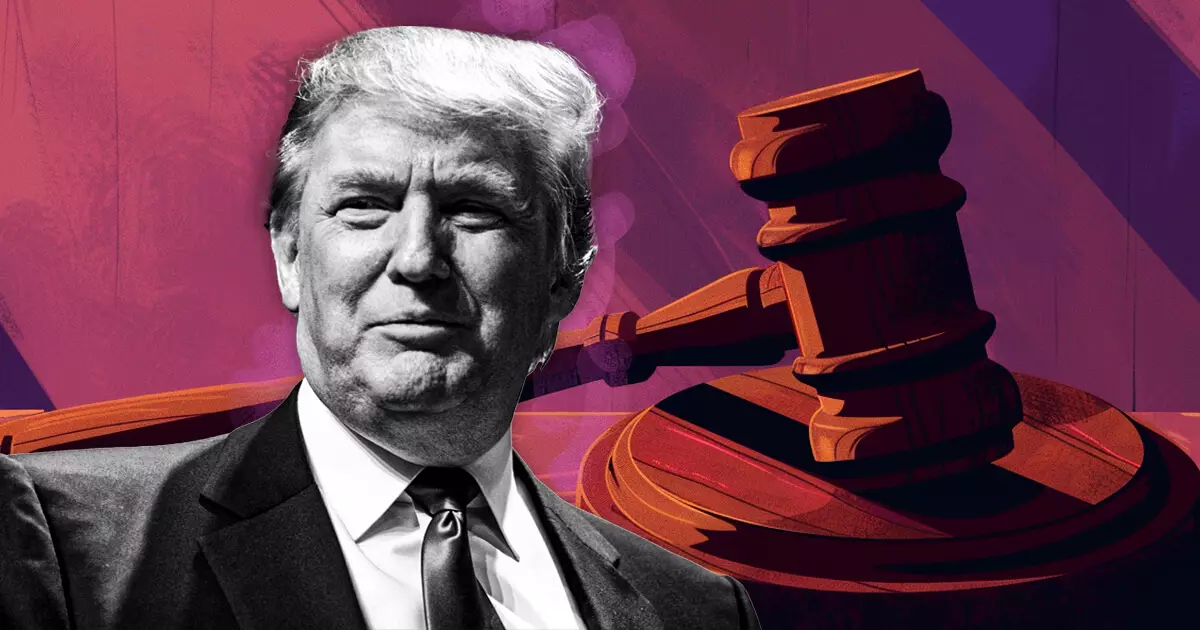The financial landscape is undergoing significant transformation, particularly within the realm of decentralized finance (DeFi). Former President Donald Trump’s venture, World Liberty Financial, seeks to carve out a niche in this burgeoning sector. However, recent remarks by SEC Commissioner Mark Uyeda suggest that this project will not easily sidestep the rigorous and often opaque regulatory framework governing cryptocurrency undertakings in the United States. This article explores the complexities of these regulations and the implications for World Liberty Financial amidst shifting political tides.
At the core of Uyeda’s commentary is the distinction between regulatory oversight focused on disclosure and assessing the inherent merits of a project. The SEC’s mandate revolves around ensuring that companies transparently communicate relevant information to investors rather than acting as a judgmental arbiter of the potential success or failure of individual projects. This approach aims to protect investors from misleading claims, yet it raises pressing questions about the viability of innovative ventures like World Liberty Financial.
Uyeda’s insistence that the SEC will maintain a consistent regulatory framework for all crypto-related firms underscores the challenges Trump’s initiative might encounter. Despite the former president’s prominence and appeal, his DeFi project will be subject to the same stringent rules and requirements as any other. It is a crucial reminder in the cryptocurrency landscape that fame does not exempt innovators from regulatory scrutiny.
Political Underpinnings and Regulatory Scrutiny
Trump’s history and the current political climate also play intricate roles in shaping the regulatory landscape for World Liberty Financial. Uyeda’s acknowledgment of potential Democratic opposition raises concerns that partisan dynamics could further complicate the venture’s path. The SEC’s actions may be influenced by a desire to maintain the political balance, especially when crypto regulation is at the forefront of legislative discussions.
The call for transparency regarding regulatory expectations is particularly relevant in this context. Lawmakers and commissioners have voiced their frustrations over inconsistent regulatory guidance, which can stifle entrepreneurial spirit in the U.S. crypto sector. Hester Peirce, another SEC commissioner, highlighted these concerns by describing the current climate as “toxic” for innovation. Her comments reflect a growing sentiment among industry participants that a more collaborative and clearly defined regulatory framework is needed to facilitate growth rather than hinder it.
World Liberty Financial: Potential for Innovation Amidst Constraints
Despite the headwinds presented by the regulatory environment, there remains a layer of optimism surrounding World Liberty Financial. Trump’s vision implies a potential pathway for positioning the United States as a leader in the global crypto arena. However, the project’s success is tightly intertwined with the SEC’s ability to clarify its regulatory stance. Without such clarity, investors may remain skeptical, questioning whether the venture can truly thrive under the weight of regulatory apprehensions.
Investors are increasingly wary of regulatory uncertainties and their impact on DeFi projects. As the SEC intensifies its scrutiny, World Liberty Financial’s ability to navigate the complex processes ahead remains a critical factor. For Trump and his team, the necessity of engaging seasoned legal experts has never been more pronounced. Uyeda’s cautionary advice to secure “good lawyers” resonates as a vital step in preparing for the convoluted regulatory maze that the team will encounter.
At the intersection of innovation and regulation lies the imperative for clear communication from the SEC and similar bodies. Proposals for establishing a joint advisory group to develop explicit regulatory guidelines signal a recognition of the need for more constructive engagement with the crypto industry. This could pave the way for reduced uncertainty, fostering an environment conducive to innovation.
World Liberty Financial undoubtedly stands at a pivotal moment with significant challenges ahead. For Trump’s project to succeed, it must not only comply with regulations but also inspire investor confidence amid bureaucratic constraints. Thus, the focus should shift not only to compliance but to fostering a climate where DeFi projects can thrive, ensuring that the U.S. retains its competitive edge in the global crypto market in the face of mounting challenges.

